Solo Act: An Interview with NPR’s Ari Shapiro
The host of NPR's storied All Things Considered brings his new, multilingual one-man cabaret to Amp by Strathmore.

“I remember going to the bars on 17th Street to make friends.”
Ari Shapiro is recalling his early days in Washington, D.C., when he interned for National Public Radio’s legendary Nina Totenberg.
“I fell in with this group one Saturday night who invited me to someone’s house for drinks. And then they said, ‘We’re all going out.’ I said, ‘Great, where are we going?’ And they said, ‘Remington’s, a country western bar. We’re going two-stepping.’ I said, ‘You’re joking, right?’ I was like, who are these people?”
It didn’t take long to make a two-stepping convert out of Shapiro.
“It was such a great bar,” the 38-year-old says. “It was the only place I’ve been to in D.C. where it didn’t matter if you were young or old, black or white, fat or thin, if you knew how to dance and somebody asked you to dance, the answer was yes. You would dance with the person, and at the end give a little thank you kiss, and move on. I ended up going to Remington’s pretty often.”
When Shapiro’s boyfriend — and now husband, with whom he’s spent the past 19 years — moved to town, he taught him how to two-step as well.
“That was the first dance at our wedding,” says Shapiro. “A two-step.”
A lot has changed for Shapiro since those early days in D.C. He rapidly became a rising star and fixture on NPR and, in 2008, launched into a side-gig as a guest singer with the world-music influenced, mini-orchestra Pink Martini, which fuses jazz, pop, and classical into a wondrous, wholly unique concoction.
In 2015, Shapiro, who had for several years served as NPR’s London correspondent, was called back to D.C., and made one of four rotating hosts of the network’s signature news program, All Things Considered.
“In the 40 year history of All Things Considered there have been, I think, about a dozen hosts,” he says. “To be one of them feels like such an honor, and such an opportunity, and such a responsibility, it’s pretty extraordinary.”
In fact, Shapiro listened to All Things Considered — touted by NPR as “the most listened-to, afternoon drive-time, news radio program in the country” — as a young boy, growing up in North Dakota.
“I have memories of being in my parents’ living room in Fargo, sitting in front of speakers that were probably as tall as I was, hearing the All Things Considered theme as my mother was making dinner,” he says. “Susan Stamberg was hosting the show back then. And now I get to work with Susan Stamberg. She’s a mentor and a friend. To inherit that privilege, that role, is something that I could never have imagined.”
He pauses to reflect. “People say, ‘Was this always your goal?’ But it was too unreal to be a goal. It never seemed like something that I could do.”
Shapiro is not one to shy away from challenges, however, and his work with Pink Martini gave rise to a solo show, Homeward, which he brings to Amp by Strathmore on Saturday, August 5. The evening is a one-man cabaret of songs performed in their native languages and based on the stories Shapiro has covered as a broadcast journalist. Throughout the evening, he performs in seven different languages — everything from Ukrainian to Scots Gaelic to Kurdish.
“Performing with Pink Martini gave me the confidence to do this,” he says. “I don’t have to hand out a lyric sheet so everybody understands what every word means. The melody and the instruments can convey meaning, and if I know what I’m singing, and I can convey that in a language that people don’t speak, they can understand what’s happening.
“I explain the songs in broad terms, but hearing, ‘This is a song that people sang in Ukraine as they buried the protesters who were killed in the Maidan,’ and then hearing that song in the language in which it was sung, is a different experience from hearing an English song. We hear English songs every day, all the time. This hopefully takes people somewhere in the same way that hearing an NPR story takes people to a different place.”
METRO WEEKLY: Two years ago, you were scheduled to be on the cover of Metro Weekly. Then something happened, something significant and remarkable — the landmark Supreme Court decision on gay marriage.
ARI SHAPIRO: I remember it well. It happened while we were on the phone, as I recall.
MW: Your cover was swapped with the Supreme Court.
SHAPIRO: And I totally agreed with and supported that editorial decision.
MW: You were very gracious about it. So now here’s our makegood. In the two years since that decision, how has life changed for you and for the LGBTQ community at large?
SHAPIRO: For me, life has changed in ways having nothing to do with that decision. I got married in 2004 — my husband and I have been together since we were in college — and yet in those two years my own life has changed dramatically. I’ve gone from living in London as a foreign correspondent to being back in Washington, D.C. hosting All Things Considered, which is a huge change.
For gay people in the U.S. generally, the marriage decision obviously extended rights to people who had been fighting for them for a long time. The marriage decision allowed people in the U.S. to say, “Okay, that’s taken care of, what’s next?” Now the focus can shift to some of the people whose needs still need to be met, whose needs were not addressed by the question of marriage. For example, I am deeply involved with SMYAL, an LGBTQ youth organization in Washington, D.C. The sorts of young people SMYAL serves are people who have real needs that were not addressed by the marriage decision. Despite all the advances in LGBTQ rights over the years, the suicide rate, the bullying rate, the homelessness rate for LGBTQ young people, remains shockingly high.

MW: Why do you think that is?
SHAPIRO: One of the unique aspects of being gay is that, unlike other minority groups, gay people are raised by parents who are not gay. For the most part, black people are raised by black parents, Latino people are raised by Latino parents, Jews are raised by Jewish parents. Gay people, generally speaking, are raised by straight parents. If you’re Jewish, as I am, you were raised by parents who, day to day, year to year, are telling you what it means to be Jewish from the time you’re very young. If you’re gay, that’s a process you have to do on your own. At some point, maybe you bring your parents into the process. Maybe your parents are eager to become part of the process, or maybe they reject you outright. I think the division of not being imbued with a sense of what it means to be gay at birth, not being given that from generations that raise you, makes life more difficult for people when they do come out, especially in communities that are not supportive.
I also think this points to one reason why popular culture is so important. When you’re a teenager coming to terms with the fact that you might be gay in a family of people who are straight, you turn on the TV and see shows that represent LGBTQ people in a wide variety of ways. Whether it’s Master of None, Modern Family, or Orange is the New Black, you see examples of a range of people living lives in different communities, in different cultures, who are LGBTQ. Even if there’s nobody in your immediate real life who’s queer, it gives you a sense of the potential of what being gay could mean.
MW: One thing the marriage decision did give rise to — and I don’t know if any of us could have expected it — was the concept of using “religious freedom” as a means of discrimination.
SHAPIRO: When I was a kid in Oregon, there were gay rights measures on the ballot, and there were also measures on the ballot that would have allowed teachers to be fired for being gay. So there’s always a push-pull in American life, always a debate, always a fight. Frankly, I think that’s a good thing. I’m not saying it’s good that anyone is trying to deprive anyone of anyone’s rights, but I do think it’s good that the conversation happens, that the debate happens, that there are fights in court. That’s a democracy. That’s the way it works.
MW: Do you think there will ever come a time when the fight ends?
SHAPIRO: I think the fight changes. Right now there are fights over trans issues that nobody was having ten years ago, because they were having different fights ten years ago. I think the nature of a democracy is that everyone is always fighting over things. That’s the way the system is supposed to work.
MW: Let’s move to your personal life. You were born in North Dakota.
SHAPIRO: Yes, indeed. My family was there for ten years. We moved away when I was eight. I have limited memories of my childhood there because I was so young, but the memories I have are all really positive. Fargo was a great place to be a little kid.
MW: Was there much of a Jewish community there?
SHAPIRO: There were actually two synagogues. There was a Reform synagogue my family would go to on Friday nights, and there was an Orthodox synagogue we would go to on Saturday mornings. We kept Kosher, which meant that once a month we would get our meats frozen on a truck that came in from Chicago. It would pull into the synagogue parking lot. We had a freezer in our garage where we would put all of the Kosher meat. Every Friday night my mother would make challah from scratch. There was a real Jewish community there.
MW: I’m curious, why did you attend both Reform and Orthodox?
SHAPIRO: My family has always been ecumenical, and my parents, especially my father, have always cast a wide net, and sort of embraced a wide range of religious practices. So I think it was a matter of inclusivity.
MW: You then moved to Oregon. What was that like?
SHAPIRO: Portland of the ’90s was not as self-aware as the Portland of today. I love Portland, but it was still sort of a well-kept secret back then. My family would go hiking on the weekends, we would go skiing on Mount Hood, or visit the Oregon coast. All of these were just a couple hours away. When I was a kid, I didn’t appreciate that most people don’t grow up with spectacular waterfalls within an hour’s drive of where they live. My mother became interested in wild flowers, I became interested in identifying birds, my father would take us wild mushroom hunting. I realize this sounds very Lewis and Clark, but in retrospect, it was a pretty extraordinary way to grow up. And, of course, like all kids, as I was growing up, I didn’t realize that it was extraordinary. It just seemed like childhood.
The other thing about Oregon is that in the ’90s, Portland was, I think, the only city in America to have an underage gay nightclub. It was called The City. I came out when I was 16 and immediately there were these queer youth groups that I started going to. And my friends and I would go to The City nightclub on Saturday nights. It was certainly not some kind of idealized gay utopia, but as a 16-year-old in the ’90s, to be able to go to a peer youth group, to be able to go to a gay nightclub before the age of 21, was pretty amazing.
MW: What prompted you to come out at such an early age?
SHAPIRO: I came out to myself when I was about 15, and after I had told a friend, my friend said, “When are you going to tell your parents?” I said, “Not until I’m really old, like in my 20s.” Then, as I thought about it, I realized that the sooner I got it over with, the sooner it could be a non-issue. It was never going to be easy, and so I might as well just get it out of the way. So I did it. This was before I had ever had a boyfriend, before I had ever gone to any gay party or club or group or anything. So my parents and I really kind of started on the journey at the same time.
MW: How did they take it?
SHAPIRO: On a scale of parental reaction they took it very well. Compared to the ideal fantasy parent that may not exist in reality, it left a little bit to be desired, but given that I sprung it on them unexpectedly and that they were improvising on the fly, I would give their reaction very high marks.
MW: What made you realise, “I’m more attracted to men than women?”
SHAPIRO: That’s a really hard question to answer. Being a teenager is a process of figuring out who you are in any number of ways, and figuring out who you’re attracted to is part of that. It wasn’t that I kissed a boy and then I kissed a girl and I decided I liked the boy better than a girl. It was just a matter of figuring out that this was who I was.
At the time there were so few role models for gay people, I remember thinking to myself, “This probably means that I’m going to have to be either a florist or a flight attendant,” because, literally, in the mid-nineties there weren’t many examples of gay people beyond that. That is meant in no way to disparage florists and flight attendants — I do enjoy arranging flowers from time to time — but one would like to think that you have a range of options, those two being among many more.
MW: You found your way to journalism. How did that happen?
SHAPIRO: Very randomly, to be honest. I was an English major at Yale, and when I finished college I had no idea what I wanted to do, and so a friend and I sat down and brainstormed a list of all the possible things we might do. NPR was on her list, and I said, “That’s a great idea. I want to put it on my list, too.” I applied for the things that were on our lists, and got rejected for all of them, including the NPR internship. Then I got a fellowship teaching English in Greece for a year, and was preparing to go to Athens when I found out that Nina Totenberg, NPR’s legendary legal affairs correspondent, hires her own interns. So I applied to Nina, and Nina offered me an internship. I told her I was scheduled to go to Greece. She said, “Go to Greece. Come work for me next year.” I said, “No, if you’re offering me this, I’m taking it.”
I moved to Washington, D.C., into a one-room apartment with a lesbian who I found on Craigslist, sleeping on her pullout sofa. I did this underpaid internship, and then, at the end of the internship, landed a temp job working on Morning Edition, which turned into a permanent job. I never left.
Until that point, I’d never written a story for my school paper, I’d never taken a journalism class. It was almost a fluke that I wound up where I am. But it is such a perfect fit for my interests and skills, and I enjoy it so much, that I feel very, very lucky to have fallen into this.
At the same time, it’s a lesson that when young people are trying to figure out where they should go and what they should do and who they should be, it’s often impossible to know. If you cast a wide net, you never know what will come back in that net. Being megalomaniacally focused on a single goal can sometimes block the possibility of really extraordinary things that you might not know are out there and would be even more satisfying than whatever that goal is.
MW: That’s great advice.
SHAPIRO: It’s also a lesson in failure, and the value of just failing repeatedly until finally you succeed at something. When we hear the stories of people who are successful, we never hear about all the things they failed at before they succeeded. We only hear the story of their success. Then people get this false narrative that successful people have never ever failed, when in fact the opposite is true. Successful people have just failed again and again and again until finally failure gave way to success.

MW: You wound up on the radio, which is a very, very specific kind of journalism, different from what we do in terms of print, and different from television. I’m not going to disparage television journalism, although I think unless you’re 60 Minutes, it sometimes doesn’t deal with the kind of depth and analysis of radio journalism.
SHAPIRO: There is a lot of great television journalism out there. It just happens to be in short supply in America right now.
MW: Where is it in good supply?
SHAPIRO: The BBC does great work. If you’re overseas, and you turn on CNN International, they do consistently compelling journalism. Unfortunately, a lot of TV news today is either one story relentless harped upon for hours with a panel of ten people, some of whom may be qualified to talk about it, some of whom just engaged in shouting matches. Or it’s viral videos and celebrity gossip, and not doing a great public service.
MW: What are the challenges and difficulties of creating a story entirely out of sound.
SHAPIRO: I’ve only ever worked in radio my whole life, so it’s a bit like asking a fish to describe the water he swims in, but I think the advantage to telling stories through audio is that it bypasses the preconceived notions people might have about somebody who they are looking at. You see somebody on TV, and you immediately jump to the conclusions about their class, their personality, their age, their political leanings. When you hear someone on the radio, somehow you can, I think, set that aside, and connect with someone on a more intimate level. It engages the listener’s brain a little more, and makes them do some work that forces them to connect with a story on a deeper level. It’s less passive.
At NPR we often say the pictures are better on the radio. Because there’s something more vivid about hearing a description and the sound of a place and letting your mind do the rest than just seeing a picture of it on your TV screen. There’s something very powerful about the human voice. When you’re broadcasting on television, often you’re orating to an unseen audience of thousands. When you’re speaking on the radio, it’s just me speaking to you. No matter how many other “yous” are out there, I’m just speaking to one person when I’m speaking through the radio. That is a very intimate connection. The way people talk about their relationship to NPR, and their experience of listening to NPR, affirms for me that this is something that connects with people on a deeper level than just providing information.
MW: What’s incredible about NPR is the formation of atmosphere in the stories, with audio creating a sense of place. NPR nails it in terms of creating a sense of environment.
SHAPIRO: Definitely something that we think about as we are out reporting is what kinds of details, what kinds of sounds, what kinds of texture will bring a place to life for somebody who is in their car driving to work, or in the kitchen making dinner, or multitasking with one ear on the radio. What will pull them in?
MW: Do you have a story in particular, over your years at NPR, that stands out as your favorite?
SHAPIRO: Honestly, I don’t. Part of this job is constant discovery and surprise. If six months go by and there isn’t at least one thing — hopefully more — that I am moved and compelled and excited about, something’s wrong. If I think back and say, “That thing I did five years ago was really the best, and I haven’t done anything as good since then,” I’m not doing the job right. Also, how do you compare the visceral experience of covering a war to the sort of poetic experience of talking to a 92-year-old man about the story of his life in rural Tennessee? Both of them are memorable, gripping experiences in completely different ways.
MW: You now have a side-career as a singer. Had you not gone into journalism, do you think you would have gone into singing full-time?
SHAPIRO: I did a lot of theater when I was in high school and college. I was in a lot of musicals, and I really loved singing and I loved acting and I loved performing. It crossed my mind to try to be an actor, but journalism was such a good fit. Journalism checked so many of the boxes that performing checked, where you connect with an audience, you make somebody see the world in a different way, you tell a story. I felt very satisfied with my life, and occasionally had sing-alongs around the piano and that was fine.
Then Pink Martini came to D.C. once, and I threw a party for them that turned into a late night singalong with my D.C. friends and all the members of Pink Martini. The next day Pink Martini’s bandleader, Thomas Lauderdale, said, “Why don’t you sing a song on our next album?” I had been a fan of Pink Martini since I was a kid — they were a Portland band that started when I was in middle school. For me, this was some kind of crazy dream come true that I thought would never actually happen.
I flew to Portland and recorded a song for the album. That was 2008. And then Thomas said, “Why don’t you perform live with us? We’re going to be at the Hollywood Bowl in September, so come to the Hollywood Bowl.” So my first time ever singing with a band was in front of 18,000 people at the Hollywood Bowl. Backstage there are all these big black and white photos of people who’ve performed at the Bowl over the years — Jimi Hendrix, Judy Garland, The Beatles — and I walked out on that stage and I sang a song.
Then Thomas said, “If you’re going to keep singing with us we need to find some more songs for you.” I’ve been recording and performing with them ever since.
MW: And now you’re going solo. What can we expect from your show?
SHAPIRO: I’ve only ever done it once, which was just to see if I could do it, and it went really well. The audience seemed to react very strongly to it. There were a lot of tears, people asked when I would be doing it again. So I’m bringing it to Amp by Strathmore on August 5, and then am taking it to Joe’s Pub in New York on August 13, which is so intimidating, because as legendary as the Hollywood Bowl is with its 18,000 people, Joe’s Pub — which holds about 200 — is legendary as a cabaret venue.
The show itself is very personal for me. I took stories that I have covered as a journalist and started thinking about the fact that there has been a soundtrack in each of these places at all of these times. I started thinking about perspective and resilience and how people get through the difficult things that we all have to try to get through. I reached out to people I had met who were protesting in Ukraine, or Syrian refugees I met who had crossed the Mediterranean from Turkey to Europe in search of a better life, and I said to these people, “What were people singing? What was in your earbuds? What was the music?” I assembled these stories and these songs, and strung them together in a way that, to me, felt useful, that felt like it said something about keeping perspective and overcoming difficult things in life. There are songs in half a dozen different languages, and it ends with an American moment. Hopefully people will be entertained, but also hopefully people will get something out of it that they can take with them.
MW: How many languages do you sing in?
SHAPIRO: [Laughs.] Shall I count? Setting aside Pink Martini, in my solo show there is French, Kurdish, Ukrainian, Scots Gaelic, German, Arabic, and English. Then with Pink Martini, I also have Greek, Italian, Spanish, Armenian, Hebrew. There may be others that I’m forgetting, but let’s say roughly a dozen.
MW: Are you fluent in them?
SHAPIRO: [Laughs.] Oh, absolutely not, but I do try to learn a song in a different language from somebody who is a native speaker. I have a friend who is Ukrainian. I found somebody in Scotland who speaks Scots Gaelic. I had to use social media to track down somebody who could help me learn Kurdish.
I always learn what the lyrics to the song mean and then try to practice them with a native speaker of that language. Because you need to know what the words are that you’re singing. And, of course, I want to pronounce them correctly. This is not all that different from what opera singers do. Any opera singer will do operas in a variety of languages. They don’t necessarily speak those languages, but they know what the lyrics are that they’re singing, and they know how to pronounce those words.
MW: There must be something transporting about entering into another culture through another language and finding the emotion of a song.
SHAPIRO: Journalism is partly about the ability to see the world from other perspectives, and singing a song in another language gives you another perspective on the world, on what the song is saying. It’s a way of showing respect to people who are different from ourselves. The trait I think is most valuable in journalism is curiosity, and learning a song in another language is another way of expressing that curiosity. It’s challenging, and it’s fun, and it helps me see the world in a different way.
MW: Moving back to the news, let’s talk about how Trump has impacted the way things are reported.
SHAPIRO: For me the biggest change is that a story that, in the past, would have carried the news cycle for a week or more, is now eclipsed the next day. There is so much happening, so fast that even for somebody like me, whose job it is to follow the news, it is hard to remember what happened as recently as one week ago, because so much has happened just in the seven days since. As you see new rules being written every single day by this administration, it’s hard to maintain an appreciation for how unusual what’s happening is. Because it’s just a relentless onslaught of things to be aware of.
Now, I don’t think that our fundamental tools of journalism have changed — I think they’ve become more important than ever, but I also think there’s more need now than there has been in the recent past for perspective, stepping back and taking the 10,000 foot view on what’s happening, and how it’s different from the American norms and standards that we’ve become accustomed to in modern history.
MW: Does President Trump’s constant attempt to discredit legitimate journalism — the drumbeat of fake news, fake news, failing New York Times, failing CNN, fake, fake, fake — bother you?
SHAPIRO: I think he’s taking advantage of something that was already in the ether. It reminds me of when I was in eastern Ukraine as Russia-backed separatists were taking over cities like Donetsk and Lugansk. They had the support of the Russian government, but they were only able to do it because people in those parts were deeply dissatisfied with their own government. Russia was only able to make the gains that it did in that area because the pump was primed.
Trump’s attacks on the media are not helpful, but they don’t exist in a vacuum. There was already diminishing confidence among the American people in U.S. institutions, including the media and the government, and churches, and unions. That, I think, is what Donald Trump took advantage of, and that is what he is speaking to. If we only view Trump’s attacks on the media as a problem in isolation, then we’re missing the point, which is that the larger problem, to me, is declining confidence in institutions, including the media.
MW: How do we combat that?
SHAPIRO: Part of it is doing better work. Part of it is educating news consumers. Part of it is working with the places people now find news, like Facebook, in order to fight the actual fake news that is out there. But it’s not only a problem with the media. It’s a problem of every American institution. I don’t know how you reverse declining confidence in American institutions generally. I’m just not sure.
MW: Do you worry about the state of NPR?
SHAPIRO: Yes, and no. I think public broadcasting is a national treasure, and I know I would feel that way even if I didn’t work at NPR. The world is better for its existence, and I think that it provides a public service. It is valuable. All of that said, I reassure myself that there are people whose job it is to worry about the state of public broadcasting, and my job is to report the news, and so I’m able to kind of push that out of my mind. None of us has guaranteed job security forever, and I hope that NPR will exist until I’m long dead and gone. If it doesn’t, then I’ll find something else to do.
MW: You sound very content, very happy with life.
SHAPIRO: I feel incredibly fortunate. Yesterday I left this band that I’ve loved since I was a kid, that I now get to sing with. I flew back to the United States to my house and my husband. We went out, had dinner. I fell asleep in an early jet-lagged stupor, and then woke up early this morning and went to the farmer’s market. And now I’m going to make gazpacho. Tomorrow I get to go into the office and host a news program that I’ve listened to my entire life. Even though the solo show that I’m doing is about adversity and getting through difficult things, and we all have to get through difficult things in our lives, at this moment in my life I feel incredibly fortunate, and I feel a lot of gratitude.
MW: Is there something that you haven’t done yet that you’d like to add to the list?
SHAPIRO: [Laughs.] Wouldn’t that be greedy of me?
Ari Shapiro performs Homeward on Saturday, August 5, at 8 p.m., at Amp by Strathmore, 11810 Grand Park Avenue in Bethesda. Tickets are $30 to $50. Call 301-581-5100 or visit ampbystrathmore.com or call (301) 581-5100.
Listen to Ari Shapiro on All Things Considered on NPR. Visit npr.org for details or to stream past episodes.
Support Metro Weekly’s Journalism
These are challenging times for news organizations. And yet it’s crucial we stay active and provide vital resources and information to both our local readers and the world. So won’t you please take a moment and consider supporting Metro Weekly with a membership? For as little as $5 a month, you can help ensure Metro Weekly magazine and MetroWeekly.com remain free, viable resources as we provide the best, most diverse, culturally-resonant LGBTQ coverage in both the D.C. region and around the world. Memberships come with exclusive perks and discounts, your own personal digital delivery of each week’s magazine (and an archive), access to our Member's Lounge when it launches this fall, and exclusive members-only items like Metro Weekly Membership Mugs and Tote Bags! Check out all our membership levels here and please join us today!




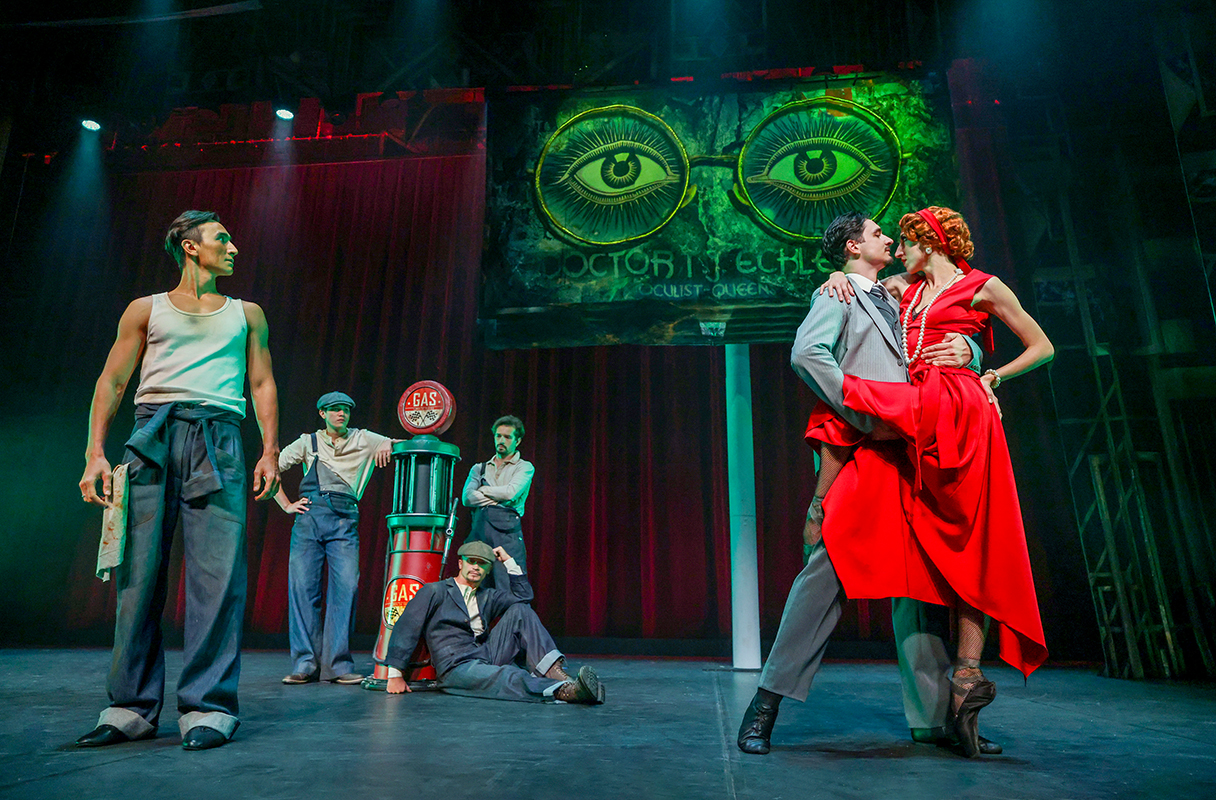
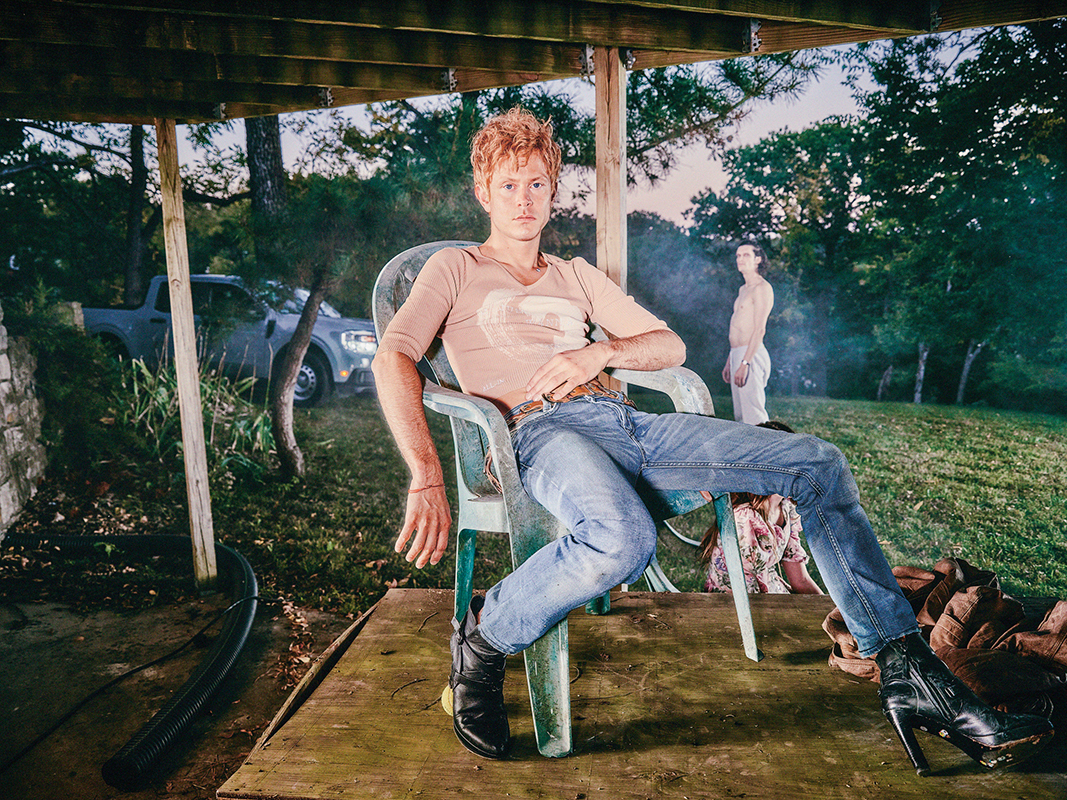
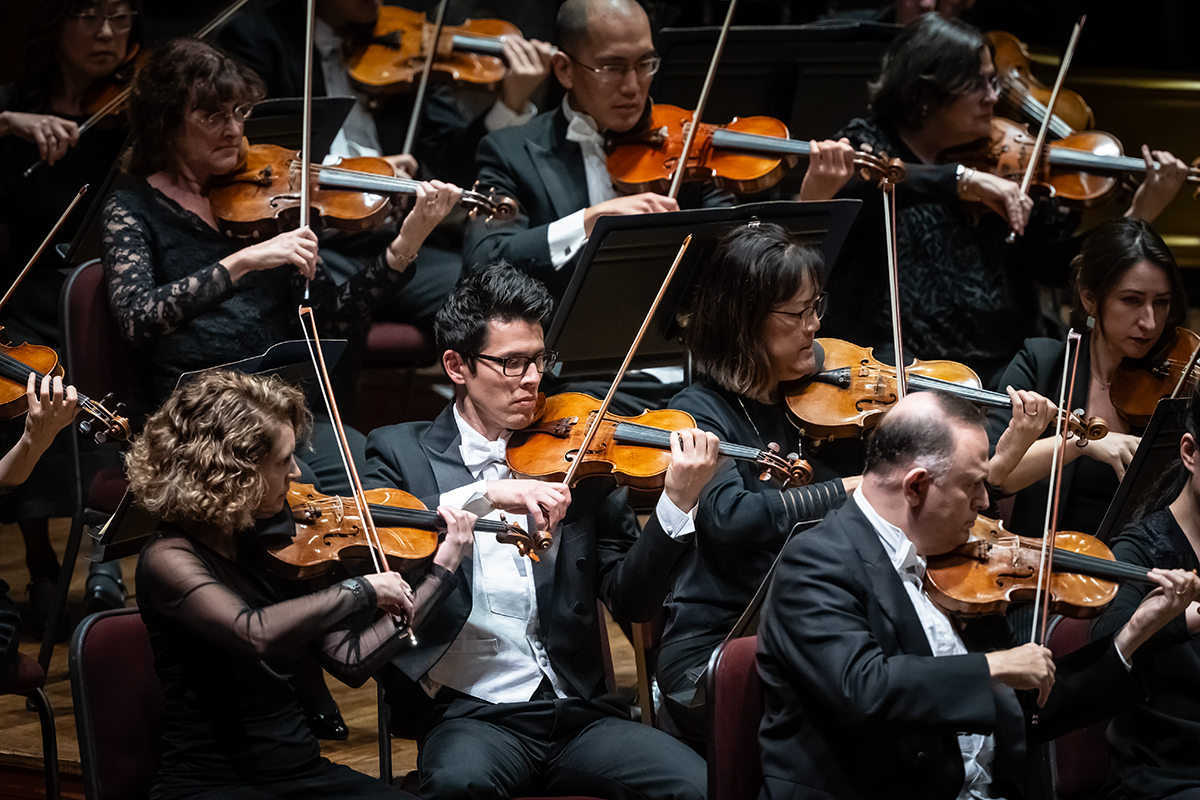














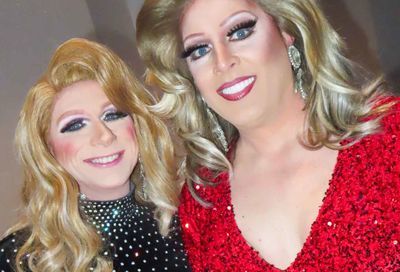
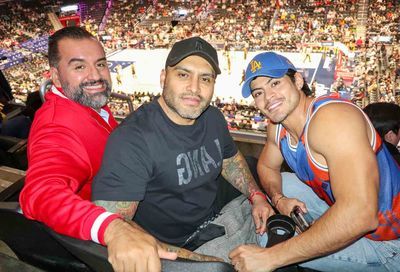

You must be logged in to post a comment.